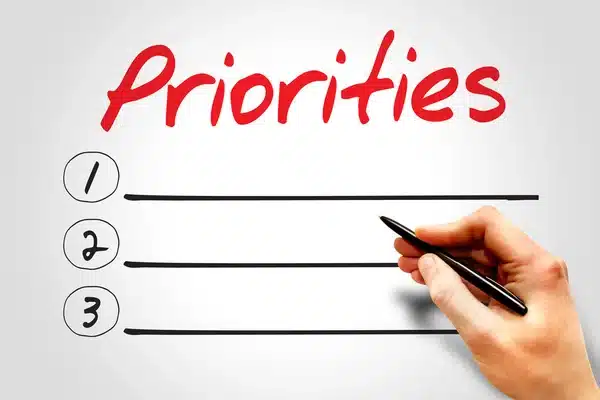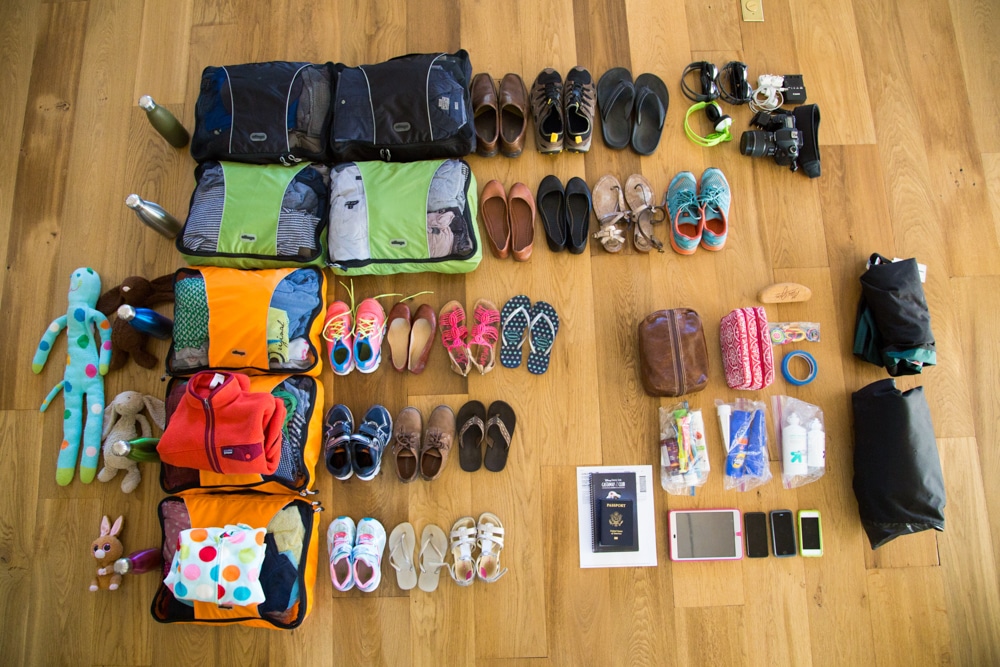Have you ever wondered how to make your family vacation truly memorable and stress-free? Family vacations are meant to be joyful experiences that bring everyone closer together, but without the right planning, they can quickly turn into stressful situations.
The key to a successful family getaway lies in strategic preparation and maintaining a flexible mindset. With the right approach, you can transform the potential for stress into an opportunity for fun, relaxation, and lasting memories. Here are a few tips for planning a stress-free family vacation.
Why Vacation Planning Matters
Planning a family vacation is more than just choosing a destination; it is about creating an experience that everyone will remember. When families take the time to plan thoughtfully, they often find that the trip becomes more enjoyable and meaningful, with everyone’s needs and preferences taken into account.
Destinations like Thailand present unique travel challenges for families, with complex mobile connectivity issues and high roaming charges that can create significant stress during international travel. Travelers can now overcome these connectivity challenges by using an unlimited data eSIM for Thailand, ensuring seamless communication and navigation throughout their journey. The key to a successful family getaway lies in strategic preparation and addressing potential travel obstacles before they become problematic.
1. Set Clear Priorities for Your Trip

Before booking anything, sit down with your family and have an honest conversation about vacation expectations. Discuss whether you’re seeking relaxation and downtime, adventure and exploration, educational experiences, or pure family bonding time. This conversation will align everyone’s goals and ensure the trip meets all family members’ needs.
Involve the Whole Family
Engagement is the key to a successful family vacation. When every family member feels their input is valued, vacation satisfaction is much higher.
Host a family “vacation brainstorming” session, let each member suggest at least one activity, create a collaborative vision board, and vote on potential destinations together. This way, everyone has a say, making the planning process fun and inclusive.
Be Realistic About Time and Budget
Unrealistic expectations quickly build up stress. Consider your available vacation days, total budget, children’s ages, and energy levels, and individual interests of each family member. Setting practical expectations will help create an enjoyable trip that everyone can fully enjoy without the pressure of over-scheduling or overspending.
2. Plan for Flexibility and Downtime
The Importance of Not Over-Scheduling
The goal of a good vacation is quality time, not checking every possible activity on the itinerary. Overpacking an itinerary will exhaust and frustrate everyone pretty fast.
So, allow time for downtime and flexibility to enable everyone to get relaxed and have fun without running around too much. Proper balance of planned activities with spontaneous can make a good and hassle-free vacation.
Choosing Destinations with Multiple Options
When choosing a destination, look for places that are full of activities so you can entertain everyone there. Choose places that have indoor options and outdoor options, with diversions in various entertainment interests as well.
Proximity to different attractions and ease of transportation between them may increase convenience and minimize the hassle when traveling. This way, you can adapt your plans to the weather or your mood, making sure there’s something for everyone.
Creating Backup Plans
There should be a backup plan on an unexpected day like a rainy day. Some good ideas can include the following: Museums and local indoor entertainment centers. You might also plan a board game afternoon or try shopping malls close by, movie theaters would also help to keep the family indoors in case outdoor activity is not feasible because of weather conditions.
This also ensures that your vacation continues to be enjoyable regardless of the different surprises that come along your way.
Vacation Planning Comparison Table
|
Vacation Planning Aspect |
Poor Planning |
Strategic Planning |
Potential Impact |
|---|---|---|---|
|
Itinerary Flexibility |
Rigid, no alternatives |
Multiple activity options |
Satisfaction increase |
|
Budget Management |
No contingency funds |
Buffer included |
Reduced financial stress |
|
Family Engagement |
Top-down decisions |
Collaborative planning |
Higher trip enjoyment |
|
Stress Levels |
High unpredictability |
Structured yet flexible |
Significant stress reduction |
3. Packing Strategies for Family Travel

Start Packing Early
Start packing at least one week before departure:
- Create a comprehensive checklist.
- Involve children in age-appropriate packing.
- Check weather forecasts.
- Prepare a designated travel document folder.
Smart Packing Tips
Essentials to remember:
- Versatile clothing layers.
- Comfortable walking shoes.
- Medications and first-aid kit.
- Entertainment for travel time.
- Chargers and power banks.
- Snacks and refillable water bottles.
4. Accommodation Considerations
Selecting Family-Friendly Lodging
In selecting the accommodations for your family trip, make sure that all of their needs and comfort are addressed. Choose one with room space and a configuration to maintain privacy and relaxation.
A kitchen or kitchenette is important when preparing meals and snacks for the kids. Complimentary breakfast, swimming pool, and activities for the children can also be of use. Another significant factor is proximity to key attractions, as it minimizes travel time and makes exploration easier.
Budget-Friendly Accommodation Strategies
Book accommodations during off-peak seasons to take advantage of lower rates. Look for family package deals that include meals or reduced-price tickets to local attractions.
Vacation rentals can often be much more spacious and feature many more amenities at a cost lower than traditional hotels. Using loyalty program points helps to cut expenses, and some accommodations even offer complimentary stays for children, making it easier to stretch your budget.If you’re planning a trip with your furry companion, you’ll find plenty of pet friendly accommodation in Byron Bay that offers comfort and convenience for both you and your pet.
5. Managing Travel Days
Travel Timing Strategies
Planning your travel times thoughtfully can make the journey smoother for everyone. Travel times should be planned according to the sleep patterns of children so that they are not disturbed much and are comfortable.
Plan frequent breaks during long trips so that everyone can stretch and recharge. Pack items like familiar toys, blankets, or pillows to provide comfort and keep kids relaxed. Set limits on screen time balance it with other activities, and always have healthy snacks to keep up energy levels throughout the trip.
Entertainment and Distraction Techniques
Keeping the children entertained during the travel is key to having a stress-free journey. Download movies and games beforehand so that they have some options even without the internet.
Travel-sized board games or card games are great to have around for interactive family fun. Audiobooks are an excellent way to engage kids on longer trips, while portable art supplies like crayons and sketchbooks can spark creativity. Interactive travel journals are yet another excellent option where kids can record their adventures and remain busy.
6. Budgeting for Family Vacations
Creating a Comprehensive Budget
- Transportation costs.
- Accommodation.
- Food and dining.
- Activities and attractions.
- Souvenirs.
- Emergency fund.
Money-Saving Tips
- Book in advance.
- Look for family discounts.
- Use cashback credit cards.
- Consider all-inclusive packages.
- Travel during shoulder seasons.
7. Safety and Health Preparations

Make sure you get yourself ready before going. Keep your health insurance and immunization records updated. Also, have copies of important documents: passport and identification. Ensure that there’s an emergency contact list for easy access.
Before your trip, it’s a good idea to acquire first aid training so you’re equipped to handle minor medical issues confidently. Being prepared makes for a smooth and enjoyable experience for all.
8. Capturing and Preserving Memories
Capturing memories is an important part of any family vacation. Designate “family photographer” roles so everyone is included in documenting the trip. Consider creating digital or physical memory books to capture your favorite moments.
Encourage children to keep travel journals, which allows them to express their experiences creatively. Use cloud storage to organize and share photos and videos, keeping memories safe and accessible.
Conclusion
Planning a stress-free family vacation isn’t about perfection—it’s about creating fun, flexible experiences that help your family bond. By prioritizing what matters most and staying adaptable, you can ensure everyone enjoys the trip, no matter where you go.
With these simple tips, vacation planning becomes an exciting, collaborative adventure. Involving your family and setting realistic expectations will help reduce stress and make your trip memorable for all the right reasons.
FAQs
How to make vacation less stressful?
To make your vacation less stressful, plan but allow for flexibility. Pack early, keep itineraries simple, and involve the whole family in the planning process.
How important is a family vacation for forming better bonds?
A family vacation is crucial for strengthening bonds by providing quality time away from daily distractions. Family vacations foster communication, shared experiences, and lasting memories.
What do you need when planning a vacation?
When planning a vacation, you need a clear budget, a flexible itinerary, and family input on activities. Don’t forget to book accommodations and plan for travel essentials ahead of time.


















